Marine Strategy Feature: Antimo Magnotta, Pianist Of Costa Concordia, Talks About His Story Of Survival
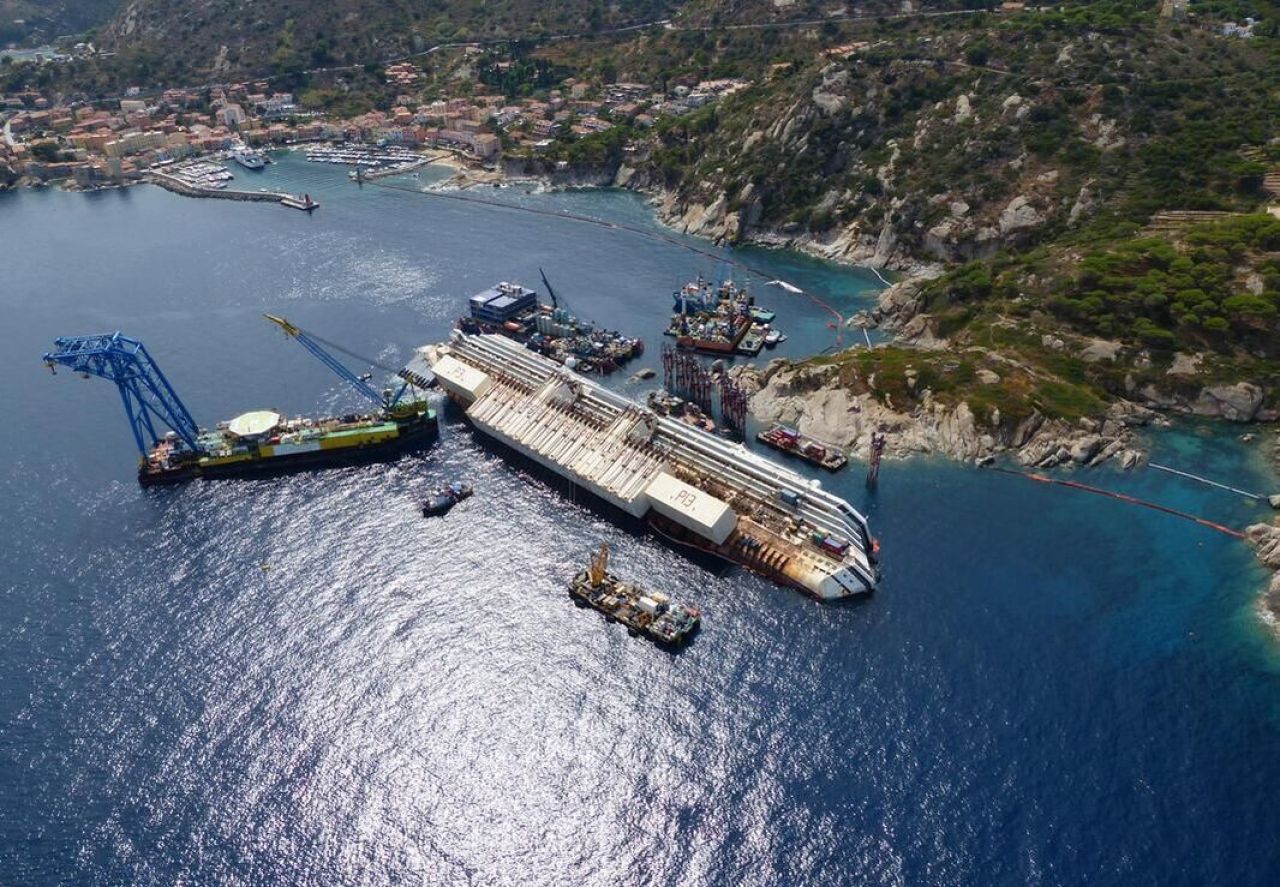
By Paul Gonzalez-Morgan
Antimo Magnotta is an Italian pianist and composer based in London since 2013. He started his professional career in 1992, right after his graduation from the music conservatoire in Avellino, Italy. Antimo was resident pianist aboard the cruise ship, the Costa Concordia, when it tragically sank in 2012, claiming 32 lives. Miraculously surviving the shipwreck, which took the lives of some of his fellow musicians, Antimo Magnotta’s remarkable story serves as a reminder of the restorative powers of music and the resilience of the human spirit.
How was life onboard Costa Concordia?
As a resident musician and crew member life aboard the Costa Concordia was a combination of many elements (in the same way as with other large cruise ships, of course). Playing the piano and traveling has been the crowning of my childhood dreams, something I had been doing for almost 18 years of my life. I was the happiest man on earth but I discovered it was not an easy life though, despite the great excitement.
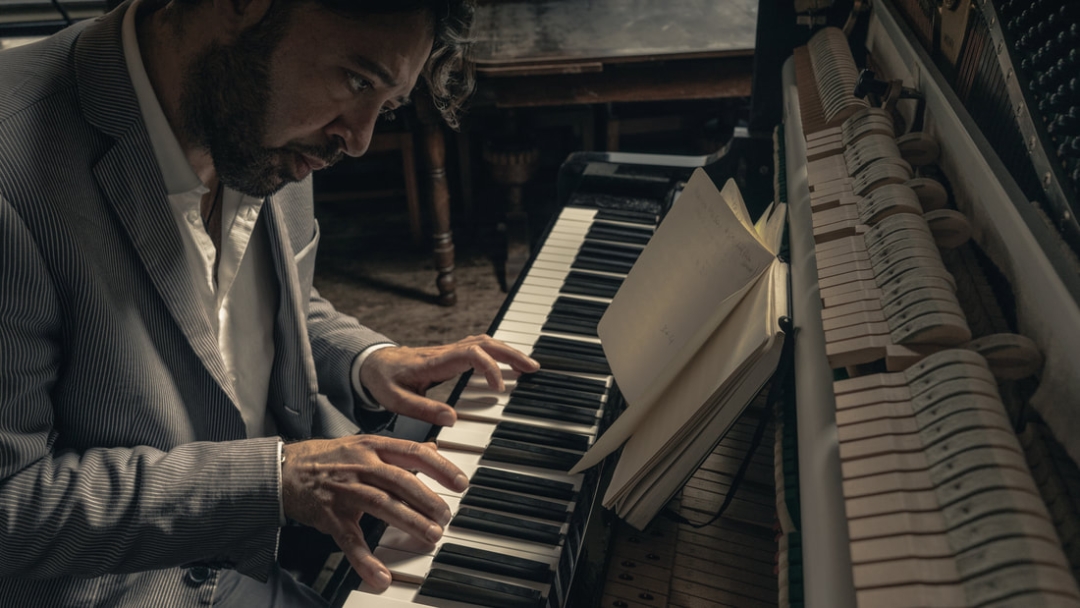 © Johan Petti
© Johan Petti
Such a very special environment requires a particular inclination and attitude: you need to be flexible, enthusiastic, resilient, strong and willing to treasure the bright side of being at sea, traveling the world, meeting people, being lightheartedly privileged, experiencing memorable moments, etc. There are downsides, of course. Your life will be encapsulated in a cabin for a relatively long time, a ‘shoebox’ you need to share, in most cases, with someone else.
No privacy, no natural light, no fresh air and the food on-board for the crew is something one would prefer to forget about.
Please tell us about how you became pianist on the ship?
The opportunity arose right after my graduation from the music conservatoire in Italy. One of my fellow musicians got a proposal he strangely refused. He was asked to sign a contract on a cruise ship as on-board pianist. The problem with this guy is that he was suffering from seasickness, so he offered me the replacement. I accepted, successfully passed the audition and my adventure started. It was during the late ’90s.
Please talk to us about the night Costa Concordia ran aground off the island of Giglio:
On Friday, January 13, 2012 the Concordia had set out from Rome on the last leg of a seven-day Mediterranean cruise with 3,229 passengers and 1,023 crew on-board. I sat down at the Yamaha baby grand in the Vienna Bar on aft deck five at 9.30pm to entertain a handful of well-dressed guests. I was fully immersed in my beautiful daily routine. It was a lovely starry night, the weather conditions were ideal for navigation, the sea was as smooth as a table. All of a sudden, at 9.42pm, the ship took a sudden swerve and started listing. I fell off the bench and the piano was torn from its safety locks and started drifting on the stage.
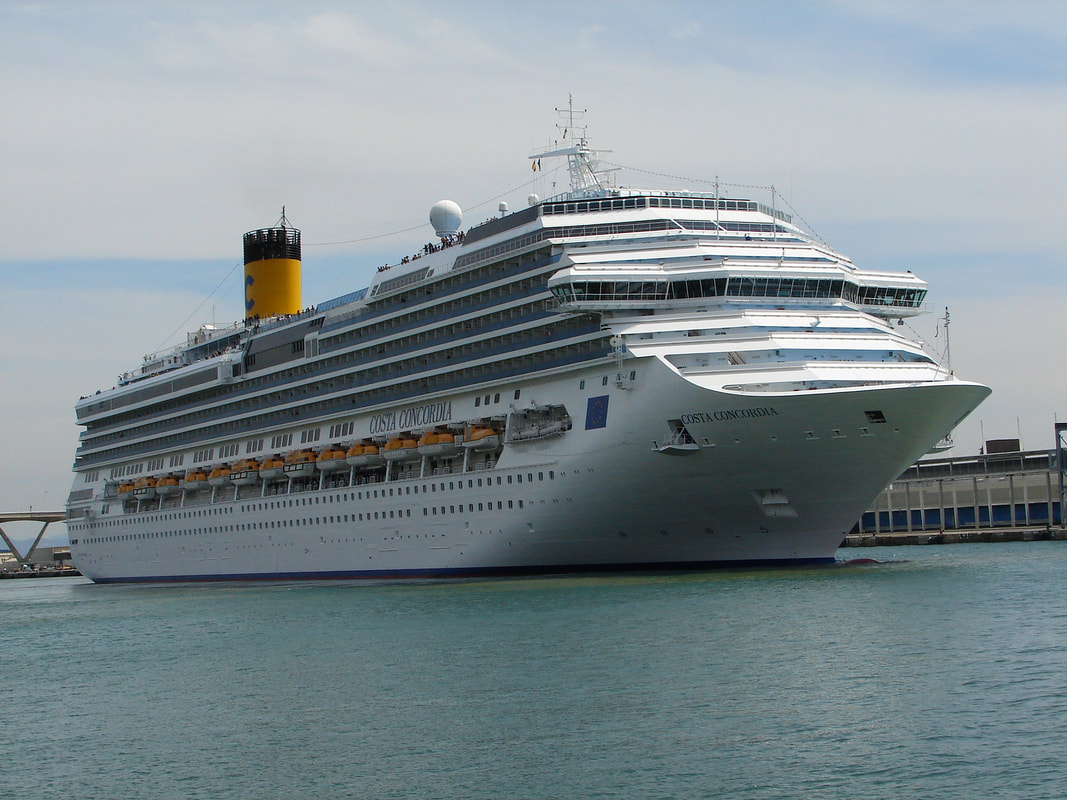 Costa Concordia at the Port of Barcelona in 2008 © Gibfran46
Costa Concordia at the Port of Barcelona in 2008 © Gibfran46
No sound of a collision was heard on deck five, although those on lower decks would later tell me of the terrible tearing sound as a submerged rock ripped a huge hole in the engine compartments, just off the coast of the Island of Giglio.
Along with other passengers and crew, I instinctively stumbled along sloping corridors to the huge dance floor at the centre of the ship — supposedly the most stable place — called the Grand Bar Berlin. As a crew member I had to avoid panic, but people were panicking because of the lack of information. There were very few announcements over the PA system about a technical problem, or a power failure, …then silence.
There were several blackouts and people started screaming and calling out name. I could hear children’s voices: ‘Where are you, Daddy, where are you, Mummy?’
Chaos took over and the nightmare began.
Darkness would engulf the dance floor and then the lights would suddenly come on revealing a scene of terrified passengers crying and reeling around the tilting room, holding broken teeth in their hands or bleeding from falls. They looked horrifying! The siren sounded the general emergency signal — seven short blasts and one long — and the mass of people began stumbling for the evacuation stations. I reached my muster station point, where, in line with my emergency training, I was supposed to take a roll call of 25 staff members. Four were missing. A passing technician told me the ship had a hole and was drifting. I realised that, because the ship was so close to land, I had a mobile phone signal, and I called my ex-wife. At first, I lied to her and said we had a technical problem. We got cut off. She called me back, having checked on the internet, and said, ‘You are in a shipwreck.’
Finally, when the order came to abandon ship I realised the lifeboat designated for my muster group was underwater. There were no more procedures or protocols to follow, so everyone scattered. By now the sound of people screaming in 60 languages was joined by loud metallic crashes as the ship — “a swan in agony” as I wrote in my book — tilted towards its final resting angle of about 80 degrees. If I were to use a musical analogy, it was a polyphony of horror. It was at this stage where I first felt fear. It seemed there was no escape for me, that I was hopeless. I had to abandon the ship, but I didn’t know how. I said my daughter’s name, I took two minutes to reflect about my life, and managed to climb — on handrails, extinguishers, pipes, wires, whatever — up to an embarkation point. It took a lifetime. I am not a sporty guy, but at these times you become superhuman. Once outside, on the flank of the hull that was tilted upwards, I knew I had to get close to the water. Jumping into the sea from any height is like jumping on to concrete and a life jacket can tear your head off in such an impact. I began sliding down the hull on a cable, a winch, from which another lifeboat had been launched. I could hear helicopters and see the lights of rescue ships, but the emergency lights on life jackets worked only on contact with water, so myself and others got them going by spitting on them, until a boat finally got a fix on us and eventually we were rescued.
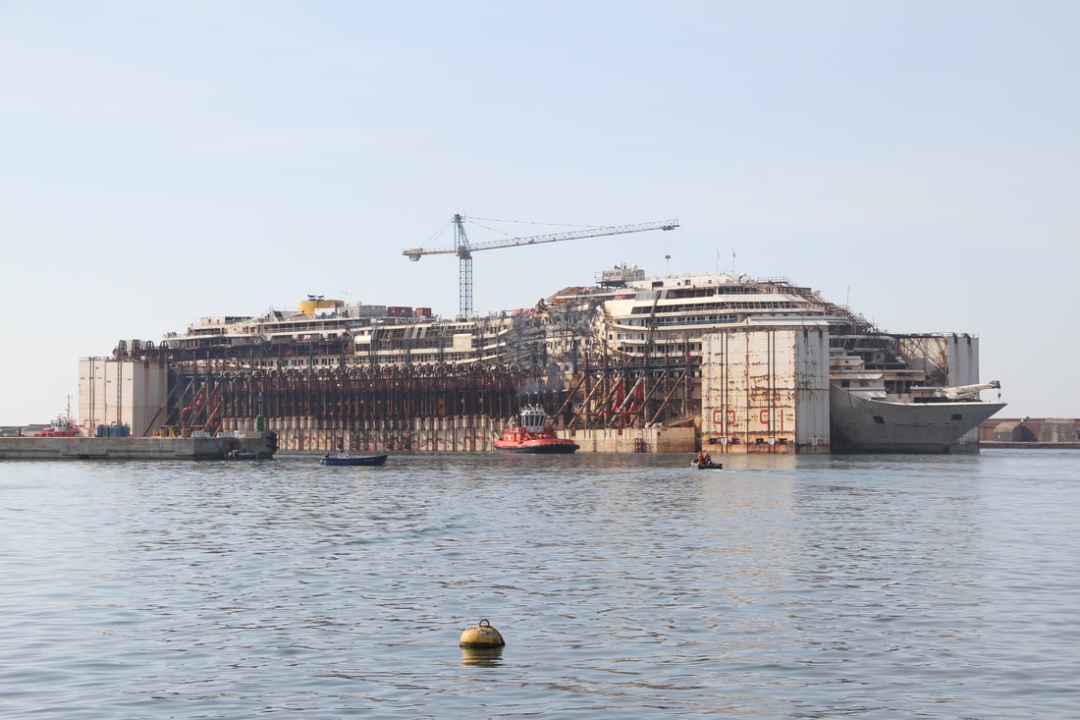 © Drafinsub Slr
© Drafinsub Slr
What was the first thought that crossed your mind when you finally reached safety?
When I jumped from the ship into a small lifeboat I felt I was literally jumping back to life. I reached the Island of Giglio around 3.00am. It took about 6 hours to abandon the Costa Concordia. No one would speak. We were all shocked, silent, not uttering a word, because of the tremendous trauma. When I touched the ground I suddenly thought I had to celebrate my second birthday from that moment on. I was alive!
How do you feel about the 32 passengers and crew, and the salvage worker that lost their lives?
It’s an immense tragedy. I lost two friends of mine, fellow musicians. The violinist of the Hungarian trio I shared the stage with and the main band’s drummer, a very friendly Italian guy. His body was found on the seabed, wearing a life jacket.
I felt so sorry for the salvage worker as well, a diver I think, who lost his life. It breaks my heart deeply.
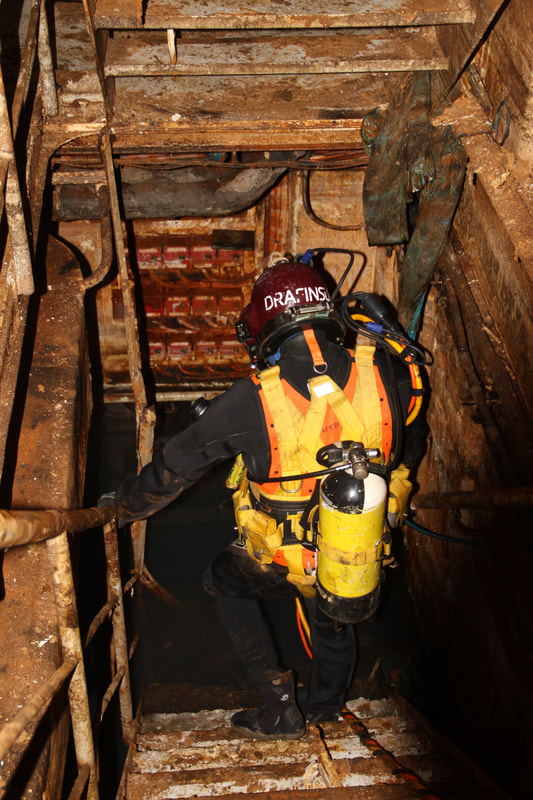 © Drafinsub Slr
© Drafinsub Slr
How has this life-changing experience influenced your music? How did music help you?
My music and my writing have been massively influenced by this experience and they turned out to be the best form of self-therapy. I was suffering from Post-Traumatic Stress Disorder and I unexpectedly started to write more than I played, at the beginning. I couldn’t play the piano after that accident. Every time I played, it would bring back memories of the shipwreck. I also decided to sell all my possessions and move from Italy to London. Whilst working, I wrote a book in my spare time about the disaster, which was published in Italy (“Sette squilli brevi e uno lungo” is the Italian title) and now about to be published in the UK in English. The English title will be “Seven short blasts and one long” – a reference to the emergency signal at the time of the disaster.
Distancing myself from my old life seemed to quell the anxieties, although I still get flashbacks to the terrible noise of screaming. Gradually, the urge to play again grew, and finally I started composing again. My album “Inner Landscape”, based on my introspective thoughts after the disaster, is a work for solo piano dedicated to those who died on the Concordia. In this album there’s also track called “32”. The main melody is composed of 32 notes, each one dedicated to the memory of the victims who lost their lives that tragic night.
If given the opportunity, would you ever go back to playing on-board a cruise ship?
Yes, sure. But only for a very short time or for a “one off” to perform my piano show.
For more information about Antimo Magnotta please visit www.antimomagnotta.com
For more news and features, visit: www.marinestrategy.com
Latest News
- Peter J Isola Foundation's 5th Annual Charity Padel Tournament Raises Over £4000 For Cancer Relief Gibraltar
- Chief Minister Writes To Prime Minister Modi And High Commissioner Doraiswami
- Med Steps 5 Challenge Raises £28,900 For Cancer Relief
- 2025 GCS Cultural Awards – Call For Nominations
- Opportunity For Students To Attend UK Political Party Conference This Autumn
- Government Launches New Email Address For Citizen Queries
- Defibrillator Battery Theft At Eastern Beach
- Government Announce Additional Parking For Summer
- Scholarship Awards 2025
- British Forces Gibraltar Celebrate His Majesty King Charles III’s 77th Birthday With Ceremonial Parade In Casemates Square



